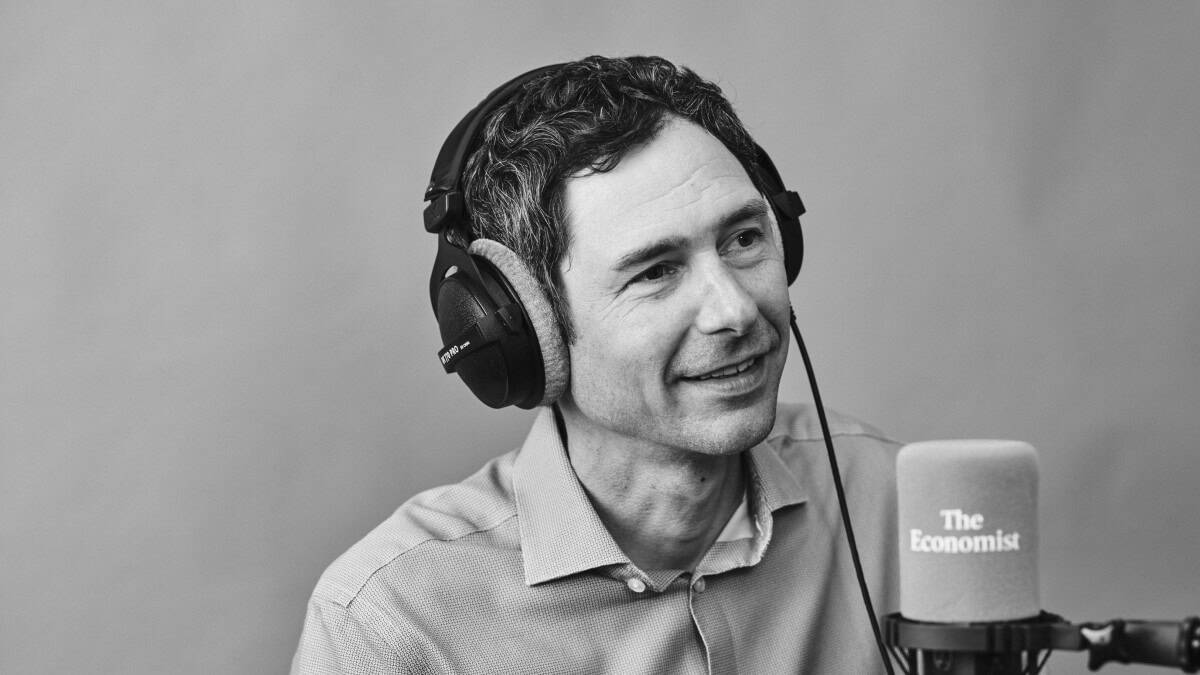Science
Physicist Jason Palmer Transitions from Lab to Journalism at The Economist

In a recent episode of the Physics World Weekly podcast, journalist Jason Palmer discussed his unique journey from the world of scientific research to a prominent role in journalism at The Economist. After completing a PhD in chemical physics at Imperial College London, Palmer shifted his focus to science writing, gaining experience at respected institutions such as the BBC and New Scientist.
Transitioning from Research to Reporting
Palmer shared insights on how scientists can successfully navigate the transition from laboratory work to media. He emphasized the importance of communication skills and the ability to distill complex scientific concepts into accessible narratives. His experience illustrates that a background in science can provide a solid foundation for a career in journalism, particularly in areas focused on technology and innovation.
During the podcast, Palmer also offered practical advice for scientists considering a similar career shift. He highlighted the value of engaging with general audiences and understanding the nuances of journalistic ethics. “It’s crucial to recognize that the audience is often unfamiliar with scientific jargon,” he noted. “The goal is to make science relatable and engaging.”
The Role of Artificial Intelligence in Journalism
As the conversation progressed, Palmer addressed the impact of artificial intelligence on the journalism landscape. He explained that AI tools are increasingly being integrated into newsrooms to assist with data analysis and content generation. While these technologies present opportunities for efficiency, Palmer cautioned that they also raise ethical considerations regarding accuracy and bias in reporting.
“Journalists must remain vigilant about the sources and accuracy of information,” Palmer stated, underscoring the need for responsible reporting in an age of rapid technological advancement.
Palmer’s transition from a physicist to a journalist exemplifies the evolving relationship between science and media. His journey not only highlights the diverse career paths available to scientists but also reinforces the critical role that clear communication plays in disseminating scientific knowledge to the public.
For those interested in hearing more about Palmer’s experiences and insights, the full podcast episode is available through the Physics World platform. This discussion serves as a valuable resource for aspiring science communicators and highlights the ongoing dialogue about the future of journalism in a technology-driven world.
-

 Entertainment2 weeks ago
Entertainment2 weeks agoAndrew Pierce Confirms Departure from ITV’s Good Morning Britain
-

 Health4 months ago
Health4 months agoNeurologist Warns Excessive Use of Supplements Can Harm Brain
-

 Health4 months ago
Health4 months agoFiona Phillips’ Husband Shares Heartfelt Update on Her Alzheimer’s Journey
-

 Science2 months ago
Science2 months agoBrian Cox Addresses Claims of Alien Probe in 3I/ATLAS Discovery
-

 Science2 months ago
Science2 months agoNASA Investigates Unusual Comet 3I/ATLAS; New Findings Emerge
-

 Entertainment1 week ago
Entertainment1 week agoGogglebox Star Helena Worthington Announces Break After Loss
-

 Entertainment1 month ago
Entertainment1 month agoTess Daly Honoured with MBE, Announces Departure from Strictly
-

 Science2 months ago
Science2 months agoScientists Examine 3I/ATLAS: Alien Artifact or Cosmic Oddity?
-

 Entertainment3 months ago
Entertainment3 months agoLewis Cope Addresses Accusations of Dance Training Advantage
-

 Entertainment5 months ago
Entertainment5 months agoKerry Katona Discusses Future Baby Plans and Brian McFadden’s Wedding
-

 Science2 months ago
Science2 months agoNASA Investigates Speedy Object 3I/ATLAS, Sparking Speculation
-

 Entertainment5 months ago
Entertainment5 months agoEmmerdale Faces Tension as Dylan and April’s Lives Hang in the Balance









